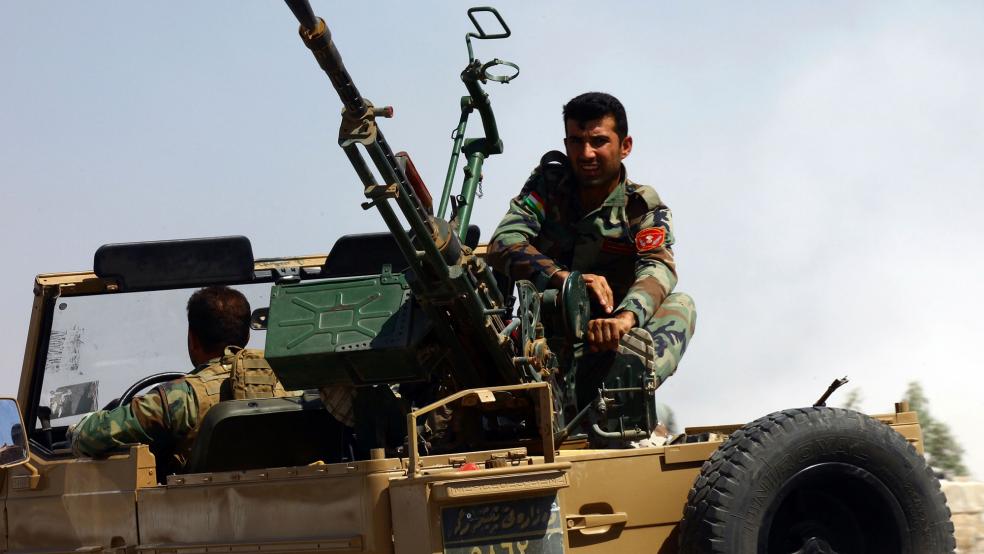President Obama appears to be taking a very big step on the path toward having American troops in combat in Iraq to go up against the Islamic State of Syria and Iraq (ISIS), the vicious terrorist group now in control of much of western Iraq and eastern Syria.
Fearing a threat from ISIS members who might be holding western passports, and in the wake of the brutal murder of American journalist James Foley at the hands of the group, the administration seems to be in a feverish mindset toward the group ISIS. With partisan disagreement over whether the president has done enough to stop ISIS, and as the American public dreads another entanglement in the Middle East, the president is considering asking Congress for approval to use unlimited military force against the group, a report in The Washington Post late Friday indicated.
Related: How the U.S. Allowed ISIS to Form a Terrorist Army
A “range of options” is being considered, according to a senior administration official. The official did not specify whether this included ground troops, but also did not explicitly rule it out.
In the near term, the most likely course of action would be air strikes against the group in Syria, where ISIS has a safe haven. It also could mean more targeted and sophisticated missions such as the Special Forces operation that failed to rescue Foley earlier in the summer.
The combination of more heated rhetoric from the administration, however, and the reality of the limits of airstrikes to defeat ISIS, suggests, as many Republicans have urged, that American boots on the ground are a possibility (even if the administration insists they’re not).
“We’ve made very clear time and again that if you come after Americans, we’re going to come after you wherever you are — and that’s what's going to guide our planning in the days to come,” Deputy National Security Adviser Ben Rhodes said Friday during a press conference. “We’re not going to be restricted by borders.”
Related: Republicans: ISIS’s Next Target Is America
The lack of restrictions Rhodes mentions suggests that American operations could soon be moving to Syria. The limitations of air power alone are on full display right now. Air strikes are effective at taking out the jihadist group’s military infrastructure, such as trucks, artillery installations, vehicles and tanks. However, the strikes are not effective at eliminating actual members of ISIS.
The risk of civilian casualties also stands in the way. The Guardian reports that members of ISIS, including its leadership, are interspersed among civilian populations.
The United States is not likely to want to risk a rash of casualties to innocent civilians. As proven in Iraq and Afghanistan, the most effective way to defeat an enemy and capture or kill its leadership is through carefully executed ground operations. If the White House wants to destroy ISIS, it might have no choice but to send American troops to do the job.
Top Reads from The Fiscal Times:





